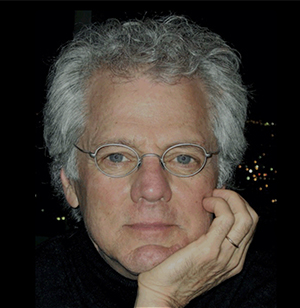History

- BCS faculty member (2009~2013)
- Psychology Department Vanderbilt University
- Member of the National Academy of Sciences
Reflections on My Time as a Faculty Member at SNU
I was privileged to be one of the fourteen scientist who, ten years ago, banded together to launch the newly formed Department of Brain and Cognitive Sciences (BCS) at Seoul National University (SNU). This exciting initiative was generously funded through the World Class University (WCU) initiative sponsored by the Korean Ministry of Education, Science and Technology. Professor Sang-Hun Lee was the PI on that grant and the Chair of the nascent BCS Department; the original BCS faculty were drawn from existing departments at SNU as well as from universities elsewhere around the world – the latter group of faculty held the title of Foreign Scholars, and we came from Germany, England, Canada and the United States. We Foreign Scholars were welcomed as full-status SNU faculty members, with resources and space allocated to our laboratories. The WCU grant also included funds for supporting a cohort of graduate students and postdocs, as well as funds for short-term visits by other foreign scholars.
Our labs were not all housed in the same building, a challenge that did not prevent us from maintaining a coherent, vibrant Department. I and one other foreign scholar maintained our offices in the newly built Building 52 (over near the tennis courts), but I spent lots of time in Building 203, which housed the state-of-the-art brain scanner that a number of us used for functional magnetic resonance imaging experiments. I loved taking that walk between Buildings 52 and 203, for it gave me the opportunity to soak up the lovely views afforded by the mountainous environment in which our beautiful campus was nestled. Equally enjoyable for me was the daily walks between the faculty housing facility near the Hoam House and my office in Bldg 52 – the steep, twisting path connecting my home and my office afforded us a welcome time to relax and get some exercise.
My first course offering in the newly minted, BCS graduate curriculum was titled “Classics in Vision” and in subsequent semesters I taught that again as well as a course on “Methods in Cognitive Neuroscience” and gave lectures in the Introductory course offered each spring for newly entering students. Those experiences were invaluable in integrating me into the totality of the BCS program, because it introduced me to students working in the various labs. I’m pleased to note that I had the opportunity to collaborate with a number of those students on projects that culminated in publications in top international journals including Journal of Neuroscience, Proceedings of the National Academy of Science, Journal of the American Medical Association: Psychiatry, Frontiers in Human Neuroscience, Frontiers in Psychology, Journal of Vision and Vision Research. I also relished the times we spent in weekly lab meetings and on occasional multi-day lab retreats where we spent time off campus in a relaxed, beautiful setting. Those opportunities energized me and gave me a deep appreciation for how well-rounded the Korean students are: strong intellectually, highly motivated, personable and genuine scientists/scholars. I have such fond memories of the students, many of whom I’ve maintained contact with following my tenure as a Foreign Scholar. It is gratifying to learn that many of them have established successful careers in science and education.
Also of immense importance to me were the opportunities to learn about Korean culture, Korean politics, Korean social styles and Korean cuisine. I am so grateful to the colleagues and students who shared with me their stories and gave me first-hand experiences enjoying Korea; the spectacular beauty of the its mountains, countryside and sea-side environs. My Korean friends took me into their homes and their hearts, and for that I am immeasurably thankful.
Most importantly, I am gratified to know that BCS continues to flourish and evolve as a distinguished center for teaching and research in brain and cognitive neuroscience. I’m honored to have played a small part in helping BCS during the first four years of its existence. My time as a Foreign Scholar in the WCU program at SNU stands as one of the highlights of my 50-year career as a college professor.
May, 2020
Randolph Blake

